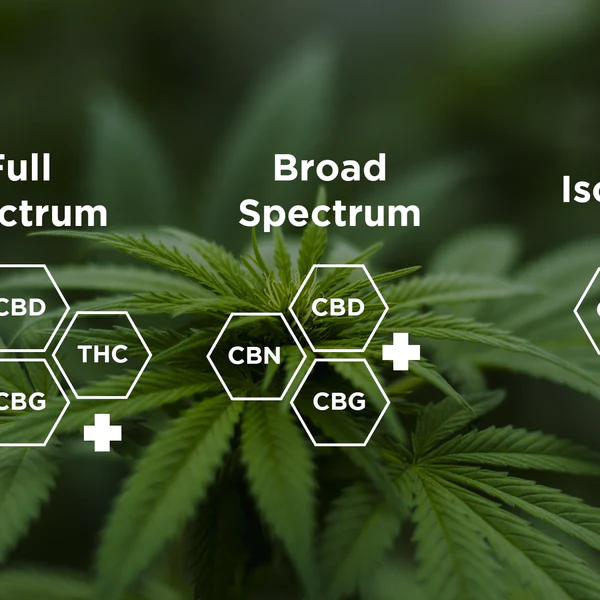Delta-8 THC, a cannabinoid that has gained significant attention in recent years, offers a range of potential benefits, from relaxation to pain relief. As its popularity grows, consumers are faced with choices when it comes to delta-8 THC products. One of the key decisions is whether to opt for Delta-8 Isolate or Full-Spectrum Delta-8. In this blog post, we’ll explore the differences between these two options and help you determine which one might be the right fit for your needs.
Understanding Delta-8 THC
Before we delve into the specifics of Delta-8 Isolate and Full-Spectrum Delta-8, it’s essential to have a clear understanding of what Delta-8 THC is. Delta-8 THC is a naturally occurring cannabinoid found in cannabis plants, though it typically exists in smaller quantities compared to Delta-9 THC, the more well-known cannabinoid responsible for the psychoactive effects of cannabis.
Delta-8 THC is often touted for its milder psychoactive properties, making it a potentially attractive option for those seeking relaxation without the intensity associated with Delta-9 THC. It’s also associated with potential therapeutic benefits, such as pain relief and anxiety reduction.
Now, let’s explore the differences between Delta-8 Isolate and Full-Spectrum Delta-8.
Delta-8 Isolate: The Pure Choice
Delta-8 Isolate is a form of delta-8 THC that has been refined and purified to contain only delta-8 molecules. It undergoes an extraction and isolation process that removes all other compounds found in the cannabis plant, including other cannabinoids, terpenes, and plant waxes. The result is a product that is nearly 100% pure delta-8 THC.
Advantages of Delta-8 Isolate:
Purity: Delta-8 Isolate is the purest form of delta-8 THC available. It contains no other cannabinoids or compounds, making it ideal for those who want a precise and isolated delta-8 experience.
Customizable Dosing: With Delta-8 Isolate, you have full control over your dosage. You can measure out and consume a specific amount, allowing for precise dosing tailored to your needs.
Predictable Effects: Because it contains only delta-8 THC, Delta-8 Isolate offers a consistent and predictable experience. You can expect the effects of delta-8 without the influence of other compounds.
Legal Compliance: In some regions, delta-8 THC is subject to specific regulations. Delta-8 Isolate may offer a more straightforward legal path since it contains no other cannabinoids.
Full-Spectrum Delta-8: The Entourage Effect
Full-Spectrum Delta-8, on the other hand, retains a broader range of compounds found in the cannabis plant. This includes not only delta-8 THC but also other cannabinoids, terpenes, and potentially trace amounts of Delta-9 THC (usually within legal limits).
Advantages of Full-Spectrum Delta-8:
Entourage Effect: Full-Spectrum Delta-8 enthusiasts often cite the “entourage effect.” This theory suggests that the combination of various cannabinoids and terpenes in the cannabis plant can enhance each other’s effects and potentially offer a more well-rounded experience.
Natural Terpene Profiles: Full-Spectrum Delta-8 products often retain the natural terpene profiles of the cannabis plant, contributing to the overall flavor and aroma of the product. Terpenes may also offer additional therapeutic benefits.
Balanced Effects: Some users find that Full-Spectrum Delta-8 products provide a balanced experience that combines the potential benefits of multiple cannabinoids, resulting in a unique and nuanced effect.
Legal Limits: Depending on your location, Full-Spectrum Delta-8 products may contain trace amounts of Delta-9 THC that are within legal limits. This could be beneficial if you’re looking for a more comprehensive cannabis experience without exceeding legal boundaries.
Which Is Right for You?
Choosing between Delta-8 Isolate and Full-Spectrum Delta-8 ultimately depends on your preferences and what you’re seeking from your delta-8 THC experience.
Consider Delta-8 Isolate if:
You want a highly pure and controlled delta-8 THC experience.
Precise dosing is essential for you.
You prefer a predictable and isolated effect.
Legal compliance is a concern in your region.
Consider Full-Spectrum Delta-8 if:
You’re interested in exploring the potential benefits of the entourage effect.
A balanced and nuanced experience appeals to you.
You appreciate the natural terpene profiles and flavors of the cannabis plant.
Trace amounts of Delta-9 THC within legal limits are acceptable in your location.
Conclusion: Personalized Delta-8 THC
Whether you choose Delta-8 Isolate or Full-Spectrum Delta-8, the key is to find the product that aligns with your goals and preferences. Delta-8 THC offers a versatile range of experiences, and your choice allows you to personalize your delta-8 journey.
As with any cannabis-related product, it’s essential to start with a lower dose, especially if you’re new to delta-8 THC, and gradually adjust as needed. Additionally, always ensure that the product you choose is from a reputable source and has been tested for quality and safety.
Ultimately, the choice between Delta-8 Isolate and Full-Spectrum Delta-8 is a matter of individual preference, and both options have their unique appeal in the world of delta-8 THC consumption.
Reference:
Akpunonu, P., Baum, R., Reckers, A., Davidson, B., Ellison, R., Riley, M., … & Gerona, R. (2021). Sedation and acute encephalopathy in a pediatric patient following ingestion of delta-8-tetrahydrocannabinol gummies. American Journal of Case Reports, 22. https://doi.org/10.12659/ajcr.933488
Bergeria, C., Strickland, J., Spindle, T., Kalaba, M., Satyavolu, P., Feldner, M., … & Weerts, E. (2023). A crowdsourcing survey study on the subjective effects of delta-8-tetrahydrocannabinol relative to delta-9-tetrahydrocannabinol and cannabidiol.. Experimental and Clinical Psychopharmacology, 31(2), 312-317. https://doi.org/10.1037/pha0000565
Dotson, S., Johnson‐Arbor, K., Schuster, R., Tervo‐Clemmens, B., & Evins, A. (2022). Unknown risks of psychosis and addiction with delta‐8‐thc: a call for research, regulation, and clinical caution. Addiction, 117(9), 2371-2373. https://doi.org/10.1111/add.15873
Kruger, D. and Krüger, J. (2023). Consumer experiences with delta-8-thc: medical use, pharmaceutical substitution, and comparisons with delta-9-thc. Cannabis and Cannabinoid Research, 8(1), 166-173. https://doi.org/10.1089/can.2021.0124 LoParco, C., Rossheim, M., Walters, S., Zhou, Z., Olsson, S., & Sussman, S. (2023). Delta‐8 tetrahydrocannabinol: a scoping review and commentary. Addiction, 118(6), 1011-1028. https://doi.org/10.1111/add.16142





